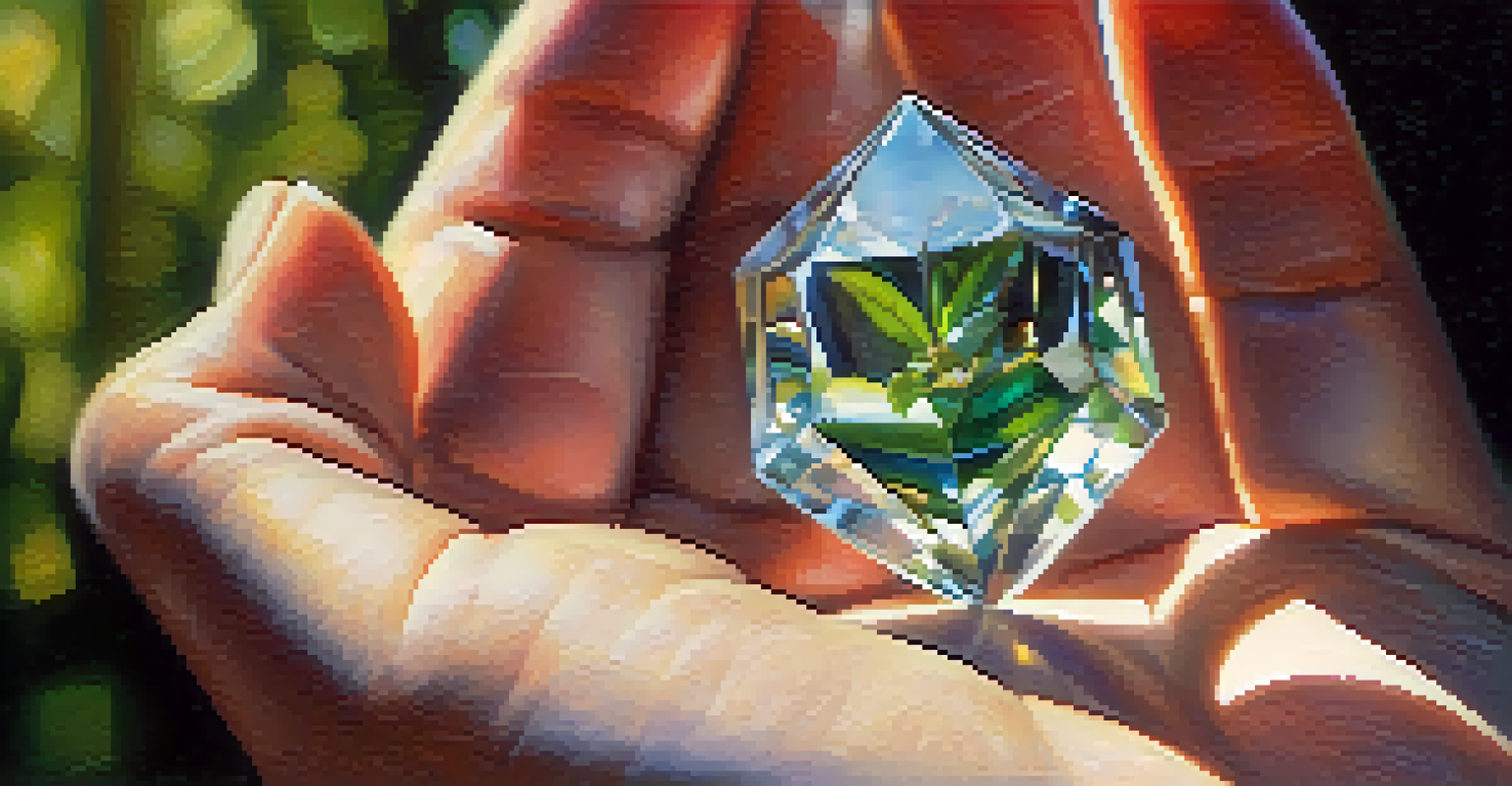Exploring Entheogens and Their Impact on Personal Identity

Understanding Entheogens: A Brief Overview
Entheogens are substances that are often used in spiritual or religious contexts to enhance introspection and self-discovery. Common examples include psilocybin mushrooms, ayahuasca, and peyote. These naturally occurring compounds have been used for centuries in various cultures to facilitate a deeper connection with oneself and the universe.
The greatest discovery of my generation is that a human being can alter his life by altering his attitude.
The term 'entheogen' comes from the Greek words meaning 'generating the divine within.' This highlights the transformative potential these substances can have on one’s personal identity. It’s not just about experiencing altered states of consciousness; it’s about fostering a profound understanding of oneself.
In recent years, the resurgence of interest in entheogens has led to a growing body of research exploring their psychological effects. Many studies suggest that these substances can lead to lasting changes in personality, perspective, and overall well-being.
The Connection Between Entheogens and Self-Exploration
Using entheogens can create a unique environment for self-exploration. During experiences with these substances, users often report insights into their beliefs, values, and behaviors. This process can reveal hidden aspects of one’s identity, leading to greater self-acceptance and understanding.

For instance, a person grappling with anxiety may find clarity about the root causes of their fears during an entheogenic journey. This newfound awareness can inspire changes in how they approach stress and relationships, ultimately reshaping their identity.
Entheogens Enhance Self-Discovery
These substances facilitate introspection, helping individuals gain insights into their beliefs and behaviors.
Moreover, the emotional experiences triggered by entheogens can help individuals confront and process past traumas. By addressing these issues, people can emerge from their experiences feeling more whole and integrated.
Cultural Perspectives on Entheogens and Identity
Different cultures have unique relationships with entheogens, often viewing them as sacred tools for personal and communal growth. Indigenous tribes, for instance, utilize these substances in rituals to connect with ancestors and the spirit world. This cultural context enriches the individual's experience, providing a sense of belonging and identity.
We are not human beings having a spiritual experience; we are spiritual beings having a human experience.
In contrast, modern societies are only beginning to recognize the potential benefits of entheogens. The shift towards viewing these substances as therapeutic rather than merely recreational highlights a growing understanding of their role in personal identity.
This cultural dialogue is essential, as it not only informs how individuals engage with entheogens but also shapes their personal narratives. The stories and contexts surrounding these experiences can significantly influence one's sense of self.
The Neuroscience Behind Entheogenic Experiences
Research into the neuroscience of entheogens reveals fascinating insights into how they affect the brain. Substances like psilocybin and LSD have been shown to alter brain connectivity, promoting communication between regions that don't typically interact. This increased connectivity is often associated with enhanced creativity and emotional processing.
As a result, many users report experiencing a sense of unity with their surroundings and a dissolution of the ego. This shift can lead to a profound re-evaluation of one's identity, as individuals begin to see themselves as part of a larger whole.
Cultural Views Shape Experiences
Different cultures perceive entheogens as sacred, influencing personal narratives and identity.
Understanding these neurological changes can help demystify the entheogenic experience, making it more accessible for those interested in exploring their impact on personal identity.
Personal Identity Transformation Through Entheogens
Many individuals who have used entheogens report a significant transformation in their sense of self. This can manifest as a newfound appreciation for life, a shift in priorities, or even a complete redefinition of one’s goals and aspirations. Such transformations often stem from the clarity gained during these experiences.
For example, someone who once identified solely with their career may come to realize the importance of relationships, leading to a more balanced and fulfilling life. This shift in perspective can help individuals align their actions with their core values.
However, it's important to approach these changes with mindfulness. While entheogens can catalyze transformation, the integration of these experiences into daily life is crucial for lasting impact.
Challenges and Risks of Entheogenic Exploration
Despite the potential benefits, exploring entheogens is not without its challenges. Some individuals may encounter difficult emotions or experiences that can be overwhelming. It’s essential to approach these substances with respect and an understanding of one’s mental health history.
Additionally, the legal status of many entheogens can pose risks for users. In some areas, these substances remain illegal, leading to potential legal consequences and stigma that can affect personal identity.
Integration is Key for Transformation
Reflecting on and applying lessons learned from entheogenic experiences is crucial for lasting personal change.
Being aware of these challenges encourages responsible use and underscores the importance of seeking guidance from knowledgeable practitioners or supportive communities.
Integrating Entheogenic Experiences into Daily Life
After experiencing the profound insights gained from entheogens, the next step is integration. This process involves reflecting on the lessons learned and finding ways to apply them in everyday life. Journaling, therapy, or group discussions can provide valuable support during this phase.
For many, the integration process is where the real transformation occurs. By actively engaging with the insights gained, individuals can make meaningful changes to their attitudes and behaviors, further shaping their identity.

Ultimately, integrating these experiences can enhance one's sense of purpose and connection to the world, leading to a richer, more authentic life.